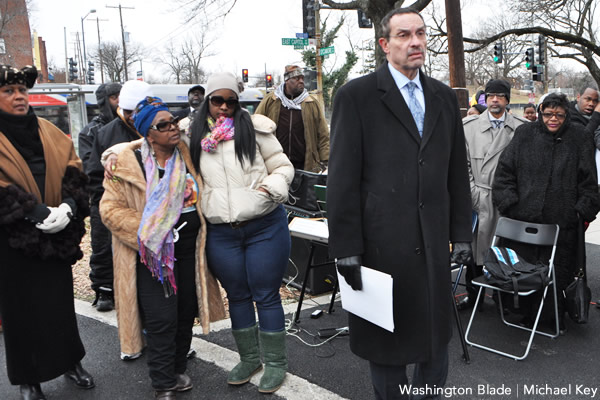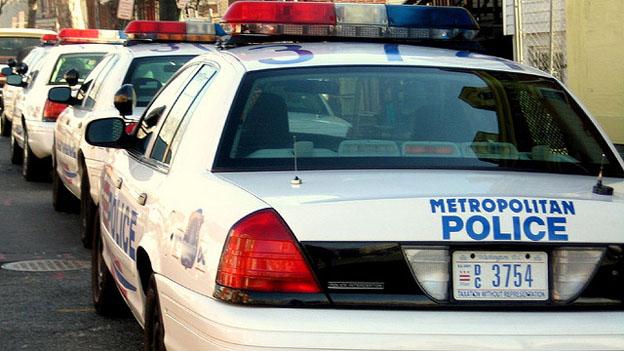feature image via Shutterstock
Last year Deoni Jones was stabbed to death at a bus stop. At her vigil, it was brought to everyone’s attention that Washington D.C. had a huge problem:
Several attendees from the LGBT community sadly noted that the spot where Jones was killed is a little more than a mile from where 23-year-old transgender woman Lashai Mclean was gunned down in July 2011; five blocks from the intersection where transgender woman Tyra Hunter died after being refused medical treatment in 1995 by emergency personnel after a car accident; and where two other transgender women, Stephanie Thomas and Ukea Davis, were shot to death in 2002.
This year, at her vigil, her family asked some tough questions about why the murder was not prosecuted as a hate crime. And Mayor Vincent Gray and his Office of Gay, Lesbian, Bisexual and Transgender Affairs actually responded to those questions.

Mayor Gray answered very eloquently with assurances that he would ask for clarity on this particular case:
“I think there ought to be a clear indication of why or why not this is viewed or not viewed as a hate crime,” Gray said. “The family clearly is not satisfied. And I think we all owe it to them to give a clear explanation over why the direction of the case is proceeding the way it is.”
But he also announced a partnership between the D.C. Mayor’s Office of Gay, Lesbian, Bisexual and Transgender Affairs and the US Attorney’s Office, a partnership that will “enhance USAO’s ability to bring criminals to justice in cases where hate or bias might have been a factor in a crime committed against an individual from the lesbian, gay, bisexual and transgender (LGBT) community.”
“While this partnership will not bring Deoni back, it will give the LGBT community more power to affect the sentences handed down to violent criminals, helping to keep them off our streets,” Mayor Gray said.
Through this partnership, the two offices will be soliciting Community Impact Statements from LGBT community members in cases where hate or bias on the basis of sexual orientation, gender identity and gender presentation was a stated part of the motive. In other words, they’re collecting stories from hate crime victims and their families, and also from the surrounding community. And in selected situations, these statements will be solicited even in cases not categorized as hate crimes. Victim impact statements are generally used in the sentencing phase of a trial, after a criminal is convicted of a violent crime. “The presiding judge will take these Community Impact Statements into account when determining the severity and length of a violent perpetuator’s sentence.”
Victim impact statements are nothing new. They’re par for the course, actually, in trials where violent crime is concerned. So I’m a little torn: on the one hand, it seems like an emphasis on something that already happens. A public relations move, almost. But the expansion to how a hate crime affect a community is new for the D.C. area, as is the focus on the LGBT community and the problems LGBT individuals faces when dealing with government. I can’t find a ton of other Offices of GLBT Affairs that aren’t part of universities – it’s just not something a city usually has in the United States. Washington D.C. also has a dedicated police unit, the Gay and Lesbian Liaison Unit, to act on crimes that appear to be motivated by hatred. Sometimes that’s enormously helpful when it comes to affecting change: people watching. People focusing on a problem, recognizing it as a problem. This makes me hugely optimistic for the future of D.C. in protecting the LGBT community.

At the same time, this new partnership seems to ignore intersectionality. Most of the murders of transgender women in D.C. are perpetrated against women of color. In fact, racially motivated hate crimes in D.C. doubled in one year. Doubled. So while it’s really wonderful to have this problem come into focus, when D.C. has clearly been a hostile environment for the transgender community from the 90’s on up, it may be problematic to shunt aside the other hate crime issues Washington D.C. has. One thing, one bureau, one partnership or policy, can’t be everything to everyone. And it’s certainly a step in the right direction, with hopefully plenty more steps to follow.







